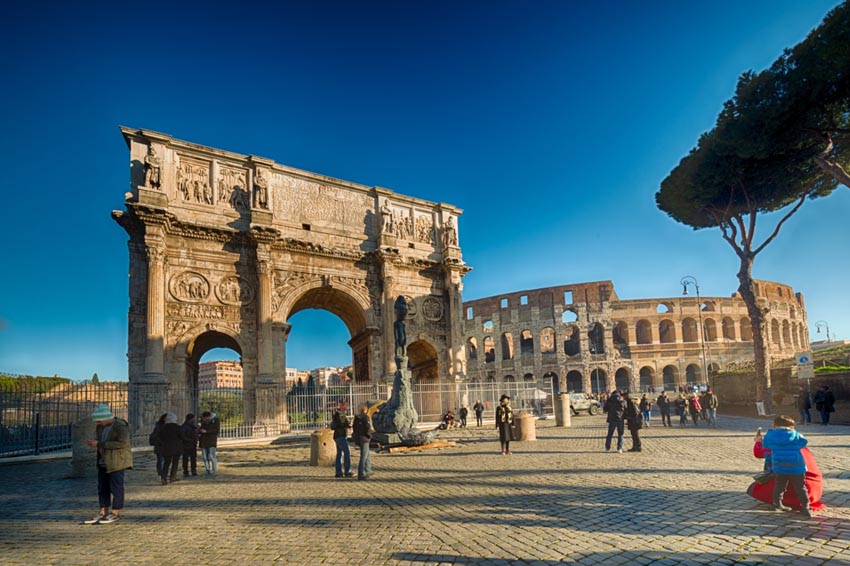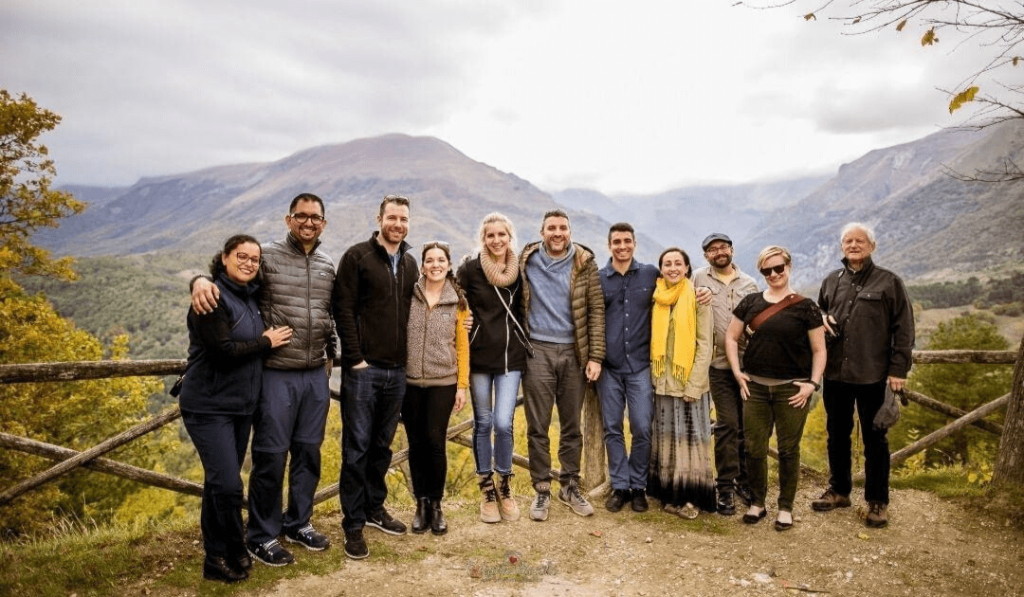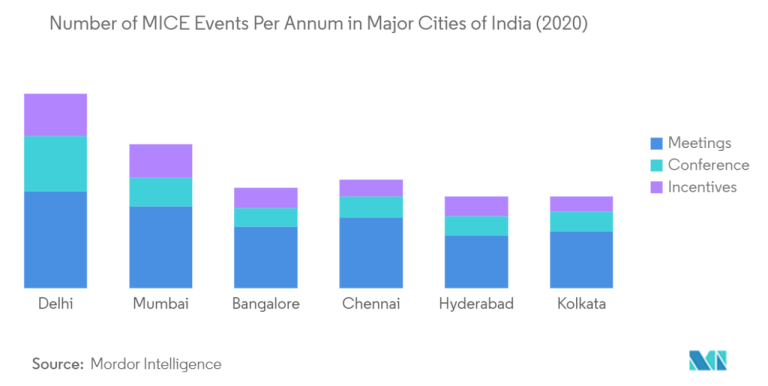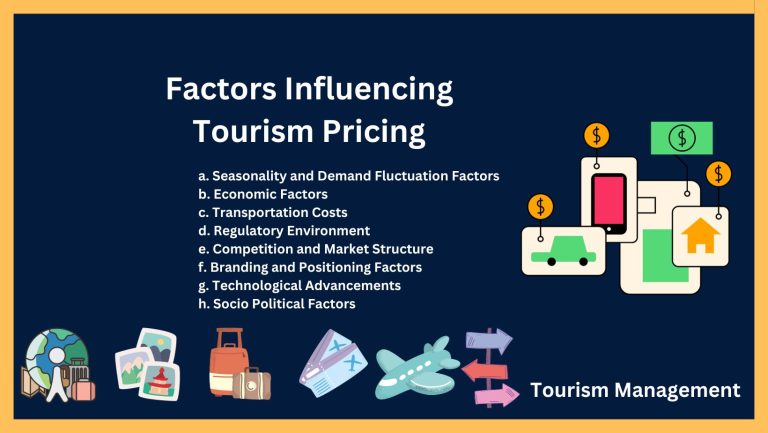Best Italian Tour Groups Your Ultimate Guide
Best Italian tour groups set the stage for this enthralling narrative, offering readers a detailed and engaging look at the diverse landscape of Italian tours. From historical explorations to culinary adventures and exciting outdoor experiences, this guide dives deep into the world of organized travel in Italy. We’ll cover everything from choosing the right tour to understanding the dynamics of group travel and planning your perfect Italian getaway.
This comprehensive guide explores the key factors influencing the choice of an Italian tour group, including budget considerations, itinerary specifics, group size, and activity options. It analyzes popular tour operators, highlighting their strengths and weaknesses, and delves into the experiences offered by top-rated groups, catering to various travel styles. Furthermore, the discussion examines group dynamics, customer experiences, and the importance of tour guides, providing a holistic view of the tour group experience.
Introduction to Italian Tour Groups
Italy’s rich history, stunning landscapes, and vibrant culture make it a globally popular tourist destination. The Italian tourism sector is a significant part of the country’s economy, drawing millions of visitors annually. This diverse offering caters to a wide range of interests, from art and history enthusiasts to foodies and adventure seekers.
Tour groups play a crucial role in facilitating these travel experiences. They provide structured itineraries, expert guides, and logistical support, allowing tourists to immerse themselves in Italian culture and attractions without the stress of independent planning. This organised approach makes travel smoother and often more enriching.
Types of Italian Tour Groups
Italian tour groups cater to various interests and travel styles. They offer a diverse range of experiences, from immersing oneself in history to savouring culinary delights or exploring breathtaking natural landscapes. This flexibility allows visitors to customise their trip based on their preferences.
- Historical Tours: These tours delve into the rich past of Italy, focusing on ancient ruins, historical sites, and architectural marvels. Examples include tours of the Roman Forum, the Colosseum, or the Renaissance cities of Florence and Venice. They often involve visits to museums and guided discussions on the historical context of these locations.
- Culinary Tours: These tours highlight Italy’s renowned culinary scene. Participants often engage in hands-on cooking classes, visit local markets, and savour authentic Italian cuisine at traditional restaurants. Expect to sample regional specialties and learn about the ingredients and preparation methods.
- Adventure Tours: These tours cater to those seeking active and adventurous experiences. They may include hiking in the Italian Alps, kayaking in the Amalfi Coast, or exploring the rugged beauty of the Dolomites. Physical fitness and an interest in outdoor activities are usually prerequisites.
- Art and Culture Tours: These tours focus on the artistic heritage of Italy. Visits to renowned art galleries, museums, and historical monuments are often included. Participants will gain insights into Italian artistic movements and the lives of celebrated artists. Notable examples include tours of the Uffizi Gallery in Florence or the Vatican Museums.
Tour Group Characteristics
A table summarizing common characteristics of different Italian tour group types:
| Tour Group Type | Average Duration | Typical Price Range |
|---|---|---|
| Historical Tours | 3-7 days | €500-€1500 per person |
| Culinary Tours | 3-5 days | €700-€1800 per person |
| Adventure Tours | 5-10 days | €800-€2500 per person |
| Art & Culture Tours | 4-7 days | €600-€1400 per person |
Note: Prices are estimates and may vary based on the specific tour, season, and included activities.
Factors Affecting Choice of Italian Tour Groups
Choosing the right Italian tour group is crucial for a memorable and enriching experience. Travelers often face a plethora of options, each promising a unique perspective on Italy. Understanding the factors that influence these choices empowers travelers to make informed decisions and ensure a trip that aligns with their preferences and budget.
Selecting the ideal tour group involves careful consideration of several key elements. Travelers often prioritize factors like budget, itinerary specifics, group size, and the activities planned. These considerations ensure a harmonious match between the traveler’s expectations and the tour operator’s offerings.
Key Criteria for Choosing a Tour Group
Travelers meticulously evaluate various aspects of tour groups to select the best fit. Budget, itinerary, group size, and planned activities all play a vital role in shaping the decision-making process. A well-defined budget helps narrow down choices to tours within financial limits, while itinerary specifics ensure the trip aligns with desired locations and activities. Group size is also a factor, impacting the experience’s intimacy and the potential for personalized attention. Finally, activities planned often reflect the traveler’s interests and desired pace of exploration.
Importance of Reviews and Testimonials, Best Italian tour groups

Traveler reviews and testimonials are highly influential in shaping travel decisions. These firsthand accounts provide valuable insights into the tour operator’s service quality, the group dynamics, and the overall experience. Positive reviews often highlight aspects like knowledgeable guides, comfortable accommodations, and engaging activities. Conversely, negative reviews can alert travelers to potential issues like inflexible schedules, poor communication, or inadequate logistical planning. This transparency is critical for informed choices.
Comparing Tour Operators
Different tour operators present varying strengths and weaknesses. Some may specialize in budget-friendly options, while others focus on luxurious experiences. Factors such as the operator’s reputation, the level of personalized attention offered, and the specific interests addressed within the tour’s scope are essential considerations. A tour focused on history might be different from one specializing in food or art.
Choosing a Tour Group Based on Specific Interests
Selecting a tour group catering to specific interests is crucial for maximizing the travel experience. History buffs might seek tours emphasizing historical sites and landmarks, while art enthusiasts would prioritize tours showcasing renowned art galleries and museums. Food lovers might prefer tours focused on local cuisine and culinary experiences. By tailoring the tour to a specific interest, travelers can deepen their understanding and appreciation of the destination.
Comparison of Popular Tour Operators
| Tour Operator | Unique Selling Proposition |
|---|---|
| Italian Adventures | Focuses on small group tours, offering personalized attention and in-depth cultural immersion. |
| Grand European Tours | Known for its luxurious itineraries, featuring high-end accommodations and exclusive access to cultural sites. |
| Italian Taste Tours | Specializes in culinary experiences, offering immersive food tours and cooking classes. |
Analyzing Popular Italian Tour Groups
A plethora of Italian tour groups cater to diverse travel preferences, from budget-conscious explorers to luxury aficionados. Understanding the strengths and offerings of these groups is crucial for travelers seeking an enriching and tailored experience. This analysis will delve into the popular choices, highlighting their specializations, itineraries, and approaches to various travel styles.
Many factors influence the choice of an Italian tour group. Considerations range from the group’s reputation and past performance to the specifics of the tour’s itinerary, activities, and overall experience. Evaluating these aspects allows travelers to select a tour that aligns with their expectations and preferences.
Top-Rated Italian Tour Groups
Several highly-regarded Italian tour operators excel in providing exceptional travel experiences. Their specializations range from historical explorations to culinary journeys and cultural immersion programs.
- “Italian Journeys” Specializes in historical tours, focusing on the Renaissance and Roman eras. Their tours typically include visits to significant historical sites, guided walking tours, and access to museums and galleries. They often partner with local experts to enhance the cultural depth of the experiences.
- “Flavors of Italy”: Focuses on culinary experiences, providing in-depth insights into Italian cuisine and regional specialties. Their tours often include cooking classes, wine tastings, and visits to local markets and farms. They emphasize the sensory aspect of Italian culture.
- “Rome & Beyond”: Offers a variety of tours tailored to different interests, from budget-friendly city breaks to luxurious private tours of iconic landmarks. They offer flexibility in choosing itineraries, accommodating various preferences.
Experiences Offered by Tour Groups
Tour groups offer a wide array of experiences, encompassing a range of activities and destinations. Their itineraries often combine historical sites with modern-day highlights, ensuring a well-rounded perspective of Italy.
- Itinerary Examples: “Italian Journeys” might include a 10-day tour encompassing Florence, Rome, and Venice, featuring guided tours of significant landmarks, museum visits, and local cuisine tastings. “Flavors of Italy” might organize a 7-day tour focusing on the culinary traditions of Tuscany, featuring cooking classes, wine tastings at renowned wineries, and visits to local farms.
- Activities: Tours frequently include guided walking tours, visits to historical sites, museums, and art galleries, cooking demonstrations, wine tastings, and opportunities for interaction with local artisans and communities. They cater to different interests by offering optional activities and extensions to the core itinerary.
Catering to Different Travel Styles
Tour groups are designed to cater to diverse travel preferences and budgets.
- Budget-Conscious Travelers: Some groups offer budget-friendly options, including hostels, shared accommodations, and meals at local eateries. “Rome & Beyond” often has packages that cater to budget-conscious travelers, incorporating options for shared transportation and local food.
- Luxury Travelers: Others provide luxurious experiences with accommodations in five-star hotels, private transportation, and exclusive access to private events. “Italian Journeys” offers optional premium packages with private guides and accommodations in luxury hotels, tailored for a refined travel experience.
Comparison of Popular Tour Groups
This table compares three popular tour groups based on ratings, reviews, and customer feedback. Customer feedback often includes comments on the quality of the guides, the balance between structured activities and free time, and the overall value for money.
| Tour Group | Average Rating | Reviews (Excerpt) | Customer Feedback Summary |
|---|---|---|---|
| Italian Journeys | 4.8/5 | “Excellent guides, well-organized tours, and fascinating insights into Italian history.” | High praise for historical knowledge and tour organization. |
| Flavors of Italy | 4.7/5 | “Wonderful culinary experiences, authentic encounters with local chefs, and beautiful food presentations.” | High satisfaction with the focus on culinary experiences and local interactions. |
| Rome & Beyond | 4.6/5 | Flexible itineraries, great for those who want a mix of structured activities and independent exploration. Good value for money.” | Recognized for balancing structured activities with freedom and good value. |
Group Dynamics and Customer Experiences
Italian tour groups, while offering a unique travel experience, can vary significantly in their dynamics. Understanding these dynamics, along with the customer segments they cater to and the role of the tour guides, is crucial for prospective travelers seeking an optimal experience. Factors like group size, activity choices, and the personalities of both travelers and guides all play a part in the success of the tour.
Typical Group Size and Dynamics
Italian tour groups typically range in size from a small, intimate gathering of 10-20 people to larger groups of 30-40. Smaller groups often foster more personal interactions and allow for a greater degree of customization in itineraries. Larger groups, while potentially less individualized, can offer a sense of community and shared experience. Group dynamics are shaped by the personalities of the participants, their expectations, and the leadership of the tour guide. Positive interactions, shared interests, and a welcoming atmosphere contribute to a more enjoyable experience. Conversely, disagreements or differing expectations can potentially create challenges.
Impact of Group Dynamics on the Overall Experience
Group dynamics profoundly affect the overall tour experience. A harmonious group, with good communication and respect for individual needs, will likely lead to a more positive and enriching trip. Conversely, disagreements, a lack of communication, or differing expectations can detract from the overall experience. For instance, a group with a diverse range of interests might struggle to find activities that satisfy everyone, whereas a group with shared interests can delve deeper into their passions. Proper planning and pre-trip communication can help to mitigate potential issues and foster a more positive group dynamic.
Customer Segments Served by Italian Tour Groups
Italian tour groups cater to a variety of customer segments, from families with children to solo travelers and groups of friends. Some groups specialize in historical tours, while others focus on culinary experiences or cultural immersion. This diversity allows travelers to find a tour that aligns with their interests and needs. Understanding the specific target audience for a particular tour group can help travelers anticipate the type of experience they will have. For example, a family-focused tour group will likely offer activities that are engaging for children, such as visits to theme parks or museums with interactive exhibits.
Role of Tour Guides and Their Impact on Visitor Satisfaction
The tour guide plays a vital role in shaping the visitor’s experience. A knowledgeable and engaging guide can transform a trip from a mere sightseeing tour into a captivating journey of discovery. Their ability to communicate effectively, tailor the experience to the group’s interests, and manage potential conflicts is key to visitor satisfaction. Conversely, a guide who is disengaged, uninformative, or insensitive to the group’s needs can significantly detract from the experience. A guide who adapts to different group dynamics and demonstrates cultural sensitivity can create a more memorable and enjoyable trip for everyone.
Suitable Activities for Different Age Groups
| Age Group | Suitable Activities |
|---|---|
| Children (6-12) | Visits to theme parks, museums with interactive exhibits, gelato tasting, playgrounds, and short nature walks. |
| Teenagers (13-19) | Historical sites with engaging stories, visits to art galleries, shopping, concerts, and attending local sporting events. |
| Adults (20-50) | Cooking classes, wine tasting, guided walking tours, visits to historical landmarks, attending opera performances, and exploring local markets. |
| Seniors (51+) | Guided walking tours, visits to historical sites with slower pacing, attending cultural events, and enjoying scenic views. |
This table illustrates the wide range of activities that can be adjusted to different age groups, ensuring a diverse and satisfying experience for all. Tailoring activities to specific age groups allows for a more engaging and appropriate experience.
Exploring Specific Italian Destinations through Tour Groups
Italian tour groups offer diverse experiences, tailored to specific regions. From the rolling hills of Tuscany to the ancient wonders of Rome and the breathtaking Amalfi Coast, these tours provide a unique lens through which to explore Italy’s rich tapestry. Understanding the offerings of tour groups focused on specific destinations is crucial for choosing the perfect trip.
Delving into the experiences offered by these specialized tour groups reveals insights into the nuances of Italian culture and history. They often incorporate local insights and experiences, enabling travellers to connect with the heart of the region, rather than simply viewing it as a collection of attractions.
Tuscany Tour Group Specializations
Tuscany tour groups excel at combining historical exploration with immersive cultural experiences. They often focus on the region’s Renaissance heritage, including visits to iconic cities like Florence and Siena, and exploring the countryside’s picturesque landscapes.
- Many tours incorporate visits to renowned vineyards and wineries, offering opportunities to sample local wines and learn about the winemaking process. This immersive experience connects the visitor with the local culture and heritage beyond the typical tourist attractions.
- The tour groups also frequently highlight the region’s culinary traditions, with opportunities to attend cooking classes and savour authentic Tuscan cuisine. This approach transcends mere sightseeing, enriching the experience with hands-on participation and local knowledge.
Rome Tour Group Specializations
Rome tour groups provide access to the city’s vast historical treasures, from ancient ruins to iconic landmarks. These tours are carefully designed to optimize the visitor’s experience by minimizing travel time between sites, allowing for a more in-depth appreciation of each location.
- Rome tour groups typically prioritize visits to the Colosseum, Roman Forum, and Palatine Hill, providing guided tours that offer insights into their historical significance. This approach combines historical context with the visual experience of these majestic sites.
- Moreover, many tours incorporate visits to Vatican City, including St. Peter’s Basilica and the Vatican Museums, allowing visitors to experience the spiritual and artistic heart of the city. The structured approach to these sites is vital to appreciating their scale and complexity.
Amalfi Coast Tour Group Specializations

Amalfi Coast tour groups are renowned for their focus on breathtaking scenery and leisurely exploration. These tours emphasize the region’s natural beauty, taking advantage of its stunning coastal views and picturesque villages.
- The tours often include boat trips along the coastline, providing unique perspectives on the dramatic cliffs and secluded coves. These scenic journeys are central to the experience, enhancing the appreciation of the breathtaking beauty.
- Many tours integrate local culinary experiences, featuring visits to local restaurants and food markets to showcase the region’s unique cuisine. This emphasis on local experiences offers a deeper understanding of the area’s culture beyond the typical tourist sights.
Comparison of Tour Approaches
| Region | Historical Sites | Food Experiences | Local Interactions |
|---|---|---|---|
| Tuscany | Guided tours of Renaissance cities, vineyards, and historic villas | Cooking classes, wine tastings, farm-to-table dining | Interaction with local farmers, winemakers, and artisans |
| Rome | Guided tours of the Colosseum, Roman Forum, and Vatican City | Food tours highlighting Roman cuisine, pasta-making classes | Interactions with local guides and restaurant staff |
| Amalfi Coast | Guided tours of historic towns and churches | Local seafood restaurants, cooking classes featuring local produce | Boat tours, interactions with local fishermen and shopkeepers |
Best Practices for Planning Italian Tours with Tour Groups

Planning a group tour of Italy requires meticulous preparation. A well-structured approach ensures a smooth and enjoyable experience for all participants, maximizing the benefits of the trip while mitigating potential challenges. Careful consideration of various factors, from initial research to on-site management, is crucial for success.
Booking and Initial Research
Thorough research is paramount in selecting the ideal tour group and itinerary. This involves examining various tour operators, comparing their offerings, and evaluating their reputations. Understanding the group’s specific needs, such as budget, desired pace, and interests, is key to finding a suitable match. Consider factors like the group’s experience level, any accessibility requirements, and preferred activities. This proactive research minimizes surprises and ensures a positive experience for everyone.
Choosing the Right Tour Group
Selecting the appropriate tour group requires careful evaluation. Factors like the group’s size, leadership style, and past customer feedback should be considered. Reviewing online reviews and testimonials provides valuable insights into the group’s reliability and responsiveness. Consider the group’s experience with similar destinations and their capacity to handle potential logistical issues. A reputable tour operator with a proven track record can significantly enhance the trip’s success.
Accommodation and Transportation
Efficiently booking accommodations and transportation is essential for a seamless trip. Negotiating group rates with hotels or other accommodation providers can often yield cost savings. Booking transportation in advance, particularly during peak seasons, is crucial to avoid unexpected delays or last-minute price hikes. The tour group should Artikel clear transportation plans, ensuring all members are aware of schedules and meeting points. Consistent communication regarding these arrangements is vital.
Managing Potential Challenges
Potential challenges, such as unforeseen weather conditions or logistical issues, should be anticipated and addressed proactively. A well-prepared tour group will have contingency plans in place to address these issues effectively. This might involve having backup transportation options or alternative activities in case of inclement weather. Clear communication channels within the group and with the tour operator are essential for handling any challenges that arise during the tour.
Step-by-Step Guide for Selecting and Booking a Tour
This structured approach simplifies the process and ensures a well-planned trip:
- Define your group’s needs and interests. Consider budget, desired pace, and specific interests to ensure the tour aligns with the group’s expectations.
- Research various tour operators, comparing their offerings, itineraries, and reviews. Look for groups with a proven track record and positive customer feedback.
- Contact potential tour operators to inquire about group rates, specific itineraries, and available dates. Obtain detailed information about the inclusions and exclusions of the tour package.
- Thoroughly review the contract, understanding all terms and conditions before signing. Verify that all agreed-upon aspects are documented.
- Book accommodations and transportation, considering group size and preferences. Confirm details with the tour operator and book in advance, especially during peak seasons.
- Establish clear communication channels within the group and with the tour operator. Share contact information and establish a system for updates and alerts.
- Develop a contingency plan for potential challenges, such as inclement weather or unforeseen circumstances. Discuss alternative plans and backup options.
Alternatives to Traditional Tour Groups: Best Italian Tour Groups
Embarking on an Italian adventure doesn’t necessitate joining a structured tour group. Independent travel offers a unique opportunity to tailor your experience to personal preferences and pace. This approach allows for deeper immersion in local culture, greater flexibility, and often, more budget-friendly options.
Independent travel, while offering freedom, requires meticulous planning and research. This section explores the advantages and disadvantages of this alternative to traditional group tours, providing insights into resources available to independent travelers in Italy.
Independent Travel Options in Italy
Italy boasts a rich tapestry of independent travel opportunities, catering to diverse interests and budgets. From budget-conscious hostels to luxurious villas, a wide range of accommodation options is available. Furthermore, a variety of transportation choices, including trains, buses, and rental cars, facilitate exploring the country at your speed. Utilizing online travel agencies and booking platforms, coupled with local transportation options, allows for efficient and personalized travel planning.
Advantages of Independent Travel
Independent travel presents numerous advantages compared to group tours. Firstly, it provides unparalleled flexibility. You’re not bound by pre-determined schedules or itineraries, allowing for spontaneous detours and unexpected discoveries. This freedom fosters a deeper understanding of local culture as you interact with the people and places at your own pace. Moreover, independent travel often proves more budget-friendly, especially when considering accommodation and dining choices outside of tour packages. Customization is another key benefit. Focus on interests that pique your curiosity, from historical landmarks to culinary delights, and tailor the itinerary to align with personal preferences.
Disadvantages of Independent Travel

Independent travel, however, presents certain challenges. Navigating unfamiliar locations and public transportation systems can be demanding, especially without a comprehensive understanding of local customs and languages. Planning all aspects of the trip, including accommodation, transportation, and activities, necessitates significant effort and research. Furthermore, independent travel can feel isolating if you prefer the company of others. Without the camaraderie of fellow travelers, the responsibility for making all decisions rests solely on the individual. Finally, a lack of guidance or support from a local expert can hinder the full appreciation of the local experience.
Resources for Independent Travelers
Numerous resources facilitate independent travel in Italy. Online travel agencies like Booking.com and Expedia provide comprehensive information on accommodation and transportation options. Detailed travel guides, whether physical or digital, offer insights into local attractions, customs, and essential phrases. Furthermore, local travel agencies can offer customized assistance and insider tips. Utilizing apps that offer real-time translation can bridge language barriers, enhancing interactions with locals.
Flexibility of Independent Travel
Independent travel allows for unparalleled flexibility. You can adjust your itinerary based on your mood and discoveries. This adaptability distinguishes it from the structured approach of group tours, offering a more personalized experience. It is particularly beneficial for travelers seeking to delve deeper into specific areas of interest, whether immersing themselves in art, cuisine, or history.
Independent vs. Group Tours: A Comparative Analysis
| Feature | Independent Travel | Group Tour |
|---|---|---|
| Flexibility | Highly customized itinerary, adjust the pace | Low – pre-determined schedule |
| Cost | Potentially lower – control accommodation, dining choices | Potentially higher – included expenses |
| Interaction | Limited or customized interaction | High interaction with fellow travelers |
| Pace | Self-directed – set your own pace | Pre-determined pace |
| Language Barrier | Potentially higher – rely on resources | Potentially lower-group assistance |
| Personalization | High-tailored to individual interests | Low – standardized itinerary |
| Effort | High-level – planning and navigation | Lowly-organized logistics |
Last Point
In conclusion, navigating the world of Italian tour groups requires careful consideration of individual preferences and needs. This guide provides a roadmap to selecting the perfect tour, offering valuable insights into the planning process, from booking and accommodation to managing potential challenges. It also explores alternatives to traditional tour groups, such as independent travel, allowing readers to make informed decisions about their Italian adventure. Ultimately, whether you choose a guided tour or an independent journey, this guide empowers you to plan a memorable and enriching experience in the beautiful country of Italy.





